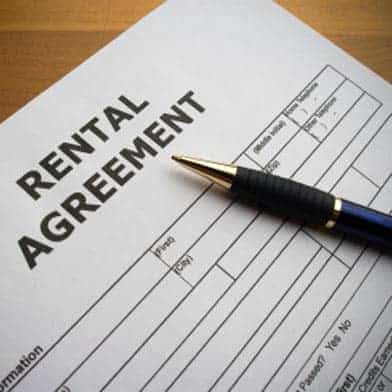
Can My Landlord Raise My Rent By $300/Month?
Can My Landlord Raise My Rent By $300/Month?
I am in a situation with my landlord and I need help understanding my rights in this poorly written lease that I should never have signed. This is in the city of San Francisco. I am not sure how to classify the unit, it was advertised as an in-law, the common type you find in the Richmond and Sunset. The landlord lives in the top level, there is a second level that her family lives in, and I live in bottom basement level. I do not know if this is a legal unit as it has no smoke detectors or carbon monoxide detectors, there is no separate address or PG&E meter and I’m almost certain it was built before 1979. Anyway, that isn’t really the issue.
I signed the month-to-month lease in May 2011. Later my boyfriend moved in. The lease does not limit occupancy to myself, or state a maximum occupancy requirement. The lease does not have any terms prohibiting subletting.
Anyway, my boyfriend has been living there for months, he even paid rent one month and she accepted and cashed the check.
Today, she emailed me saying she wants to raise rent from $1,300.00 to $1600.00. She didn’t ask for anything in writing, didn’t ask to have him sign onto the lease, its all about money.
My question is can my landlord raise the rent higher than 6%? Am I breaching my lease as there is no clause against another occupant? I just noticed the part that says landlord will return security deposit no later than 60 days. I know CA law requires 21 days, what do I do about that?
Last week I mentioned that there are several major recurring themes in landlord tenant relationships. You have encountered a few of them.
First, most landlords cannot see past their noses when it comes to money. It’s always all about the money. Second, some landlords seem to want to cut off their noses just to increase the rent. Third, don’t live in the same building as a landlord. You’re likely to encounter a troll in the basement, or as in your case, upstairs.
If I was Mitt Romney, I’d bet $10,000.00 that you live in an illegal unit. In “Tenant Troubles: Can I Be Evicted Just Because My Apartment’s An Illegal Unit?,” I outline some of the things to look for to determine if your unit is an illegal in-law.
Illegal in-law units have been a source of landlord tenant tension for years. They are some of the best deals in town and can be pleasant places to live, until the landlord starts screwing around with the tenant or a new owner wants to remove the unit from the market.
All of the lawsuits we have filed are based on facts similar to yours. The landlord gets greedy. The tenant realizes the unit is illegal and reports it. The tenants loses a cheap place to live and the landlord loses the income from the unit forever–a lose, lose proposition initiated by landlords just like yours.
The unit, regardless of its status, is rent controlled because the building was built before 1979 and it has two, if not three, units. Therefore, the landlord can only increase the rent based on the allowable annual increases determined by the Rent Board. The landlord cannot increase the rent at all until you’ve lived in the unit one year. In your case, the rent can be increased next May by the allowable 1.9% or $24.70.
I looked over your lease and, indeed, it does not prohibit subletting. The landlord would be foolish to attempt to evict you for allowing your boyfriend to move in. (Foolish in any case because you should report the unit to the DBI if the landlord attempts to evict you at all.)
I’d make another one percenter style bet that when you move, the landlord won’t return the security deposit. It’s just par for the course for Cheese Balls like this. California law will trump the terms of your lease. The landlord should return your security deposit in full (Remember, she shouldn’t be renting the place at all.) within the 21-day period.
What do you do if the landlord refuses to return the deposit? You sue her.








